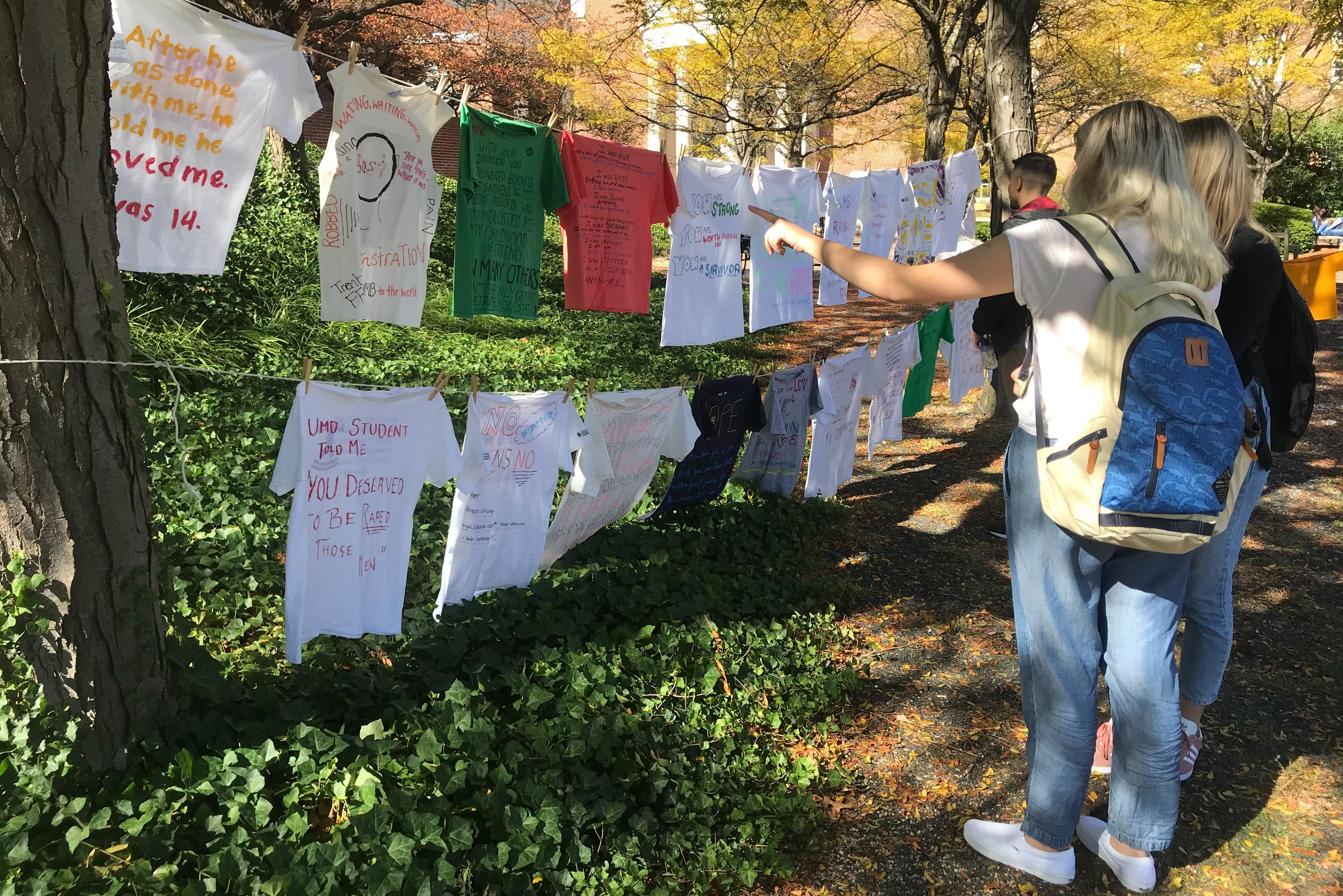By Hannah Ziegler
For The Diamondback
Twice a year, CARE to Stop Violence at the University of Maryland holds an event called the Clothesline Project to raise awareness of relationship and sexual violence in this university’s community.
This most recent event, held on Oct. 21, provided members of the community with an opportunity to confront power-based violence on the campus and create their own messages of empowerment in honor of Domestic Violence Awareness Month.
Participants said the event was still important to hold this semester, despite the changes it underwent due to the coronavirus pandemic.
“Even though COVID has taken over a lot of the conversations … sexual assault still exists,” said Lizzie Mafrici, a senior public policy and women’s studies major. “It’s really important … to make sure that there’s a space for survivors to be heard, especially during quarantine when that’s so isolating.”
In the past, students would create T-shirts displaying messages of empowerment and join CARE staff to hang them on a clothesline in Hornbake Plaza.
This year, in addition to the physical clothesline on Hornbake Plaza, CARE posted virtual designs on its social media pages, keeping the designs anonymous.
[With the Affordable Care Act in jeopardy, some UMD students worry they may lose coverage]
Caroline Howser, a freshman government and politics major who visited the in-person clothesline and followed the event online, said she thinks the event can reach more people in its hybrid format.
“If it was solely at Hornbake, I think a lot of people wouldn’t give it a second look,” Howser said. “Posting on social media, it can be there forever. It’s something that survivors can always look back on if they need comfort or reassurance.”
There were 18 total designs posted on CARE’s Facebook page, and the physical clothesline that hung in Hornbake Plaza also had many contributions.
Survivors’ shirts posted onto Facebook displayed messages such as “I hope you know my body still trembles and shakes when I walk past Washington Hall” and “It has taken me this long to realize it is not my fault.”
Digital shirts posted by supporters aimed to promote comfort and healing, with messages ranging from “Stay strong” to “We shouldn’t live in fear.”
Grace Fansler Boudreau, CARE’s outreach and assessment coordinator, said she thinks the event helps support survivors.
“When someone is walking by the Clothesline Project and seeing all of those shirts, they could imagine someone wearing that shirt,” Boudreau said. “Each [shirt] is a person who is there to support survivors or someone who has been directly affected by power-based violence.”
[Afro-Latino students at UMD take pride in identities despite years of prejudices]
Mafrici, president of the student group Preventing Sexual Assault, agreed.
“On a very personal level, it reminded me that survivors on this campus still need support and still need their voices to be elevated,” Mafrici said.
And the Clothesline Project is especially important during the pandemic, Boudreau emphasized.
“Because of the pandemic, rates of relationship violence are actually going up,” she said.
The National Domestic Violence Hotline reported a nine percent increase in contact from victims during March and April, when stay-at-home orders were implemented across the country, compared to the same period in 2019.
Howser saw the shirts and the event as an empowering way for survivors to reclaim what had happened to them.
“A lot of time, [people] don’t get closure after what happens to them,” Howser said. “The Clothesline Project is a way to get that closure and start to reclaim your power and your life.”
As someone who has been impacted by relationship violence, Howser said the Clothesline Project submissions reminded her that she’s not alone.
And, Mafrici says, that’s exactly the goal.
“It is a space for survivors to see that they are not alone,” she said.



